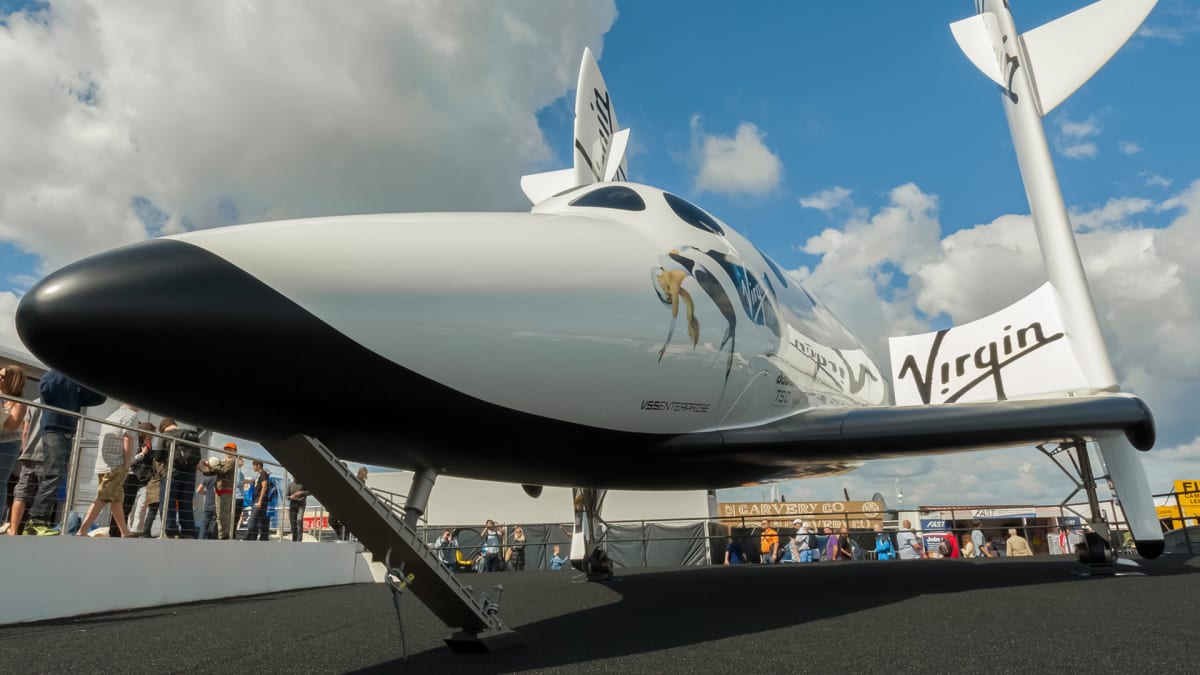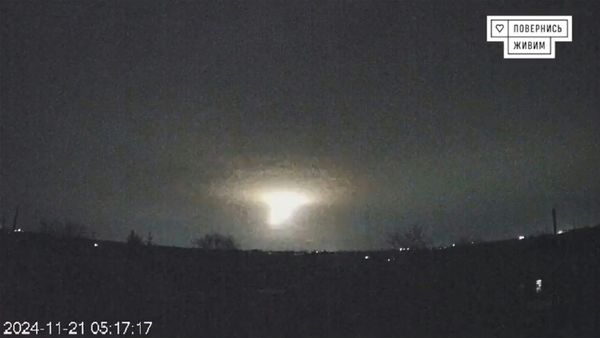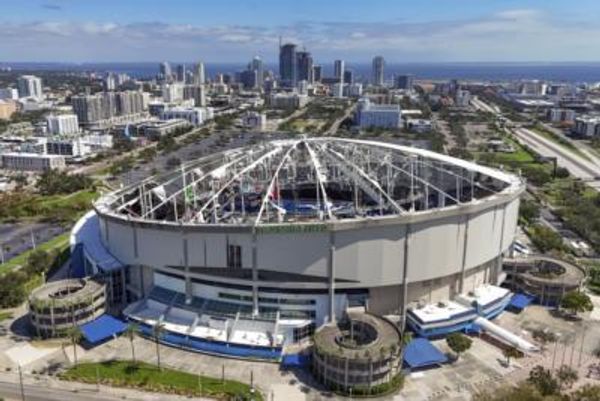
Hearing about the failure of a rocket systems orbital launch is one thing, seeing a space crafts fiery descent back to the earth from whence it came is quite another.
Richard Branson's Virgin Orbit (VORB) stock took a hit this week after its LauncherOne rocket failed to reach orbit.
Footage of the aftermath of Monday night's failed launch has been viewed more than 36,000 times on Youtube, with Marco Langbroek, an astrodynamics lecturer at Delft Technical University in the Netherlands telling Gizmodo that the timing and location of the footage confirmed that the video was in fact of LauncherOne.
Virgin's jumbo jet, Cosmic Girl, successfully took off, climbing 35,000 feet, before its LauncherOne rocket detached and successfully reached space.
However, with the rocket traveling at more than 11,000 miles per hour during the firing of its second stage engine, its system "experienced an anomaly" and the mission was deemed a failure.
On Jan. 12, the company provided more details about what went wrong on the "Start Me Up" mission, which was supposed to be the first orbital rocket launched from British soil.
What Went Wrong
Engineers on the ground terminated the mission after the first rocket burn of the second stage of the flight experienced a untimely shutdown.
The rocket's first stage engine operated correctly, quickly sending the aircraft hypersonic and allowing it to reach space altitudes.
However, an "anomaly" in the upper stage of the mission prematurely ended the first burn of the upper stage, forcing the ground crew to end the mission.
"We are all disappointed that we were not able to achieve full mission success and provide the launch service that our customers deserve," CEO Dan Hart said.
Virgin Orbit notes that while its four previous orbital missions were successful, it has already begun investigating what went wrong in Monday's launch.
"I am confident that root cause and corrective actions will be determined in an efficient and timely manner," Hart said. "We are continuing to process and test our next vehicle per our plan and will implement any required modifications prior to our next launch."
Space Race Heats Up
While Richard Branson is falling behind the pace setters in the space race, the rivalry between Elon Musk and Jeff Bezos, two of the world's wealthiest men, is heating up.
The Musk founded rocket-tech company SpaceX has seen its shares of wins and losses, as has Bezos and the space company he founded, Blue Origin.
But the success of the companies allows the U.S. government to continue its space ambitions at a fraction of the cost thanks to outsourcing.
The U.S. military is reportedly signing deals with commercial space companies to explore the idea of using rockets typically tasked with launching satellites or astronauts into space to shuttle military cargo around the world at record speeds.
Space Commercialization
There's plenty of controversy still on the ground, though. Astrophysicist Neil Degrasse Tyson recently faced backlash on social media after he tweeted praise for Tesla (TSLA) chief Elon Musk and his commercialization of space through SpaceX.
Many users pointed out that "commercializing" things on earth like healthcare and politics has led to disastrous results.
Musk, Bezos, and to some extent Branson, aren't commercializing space. They are commercializing space travel, and the difference has turned what was once an unimportant part of the government's budget into a bustling industry in the hands of private enterprise.







